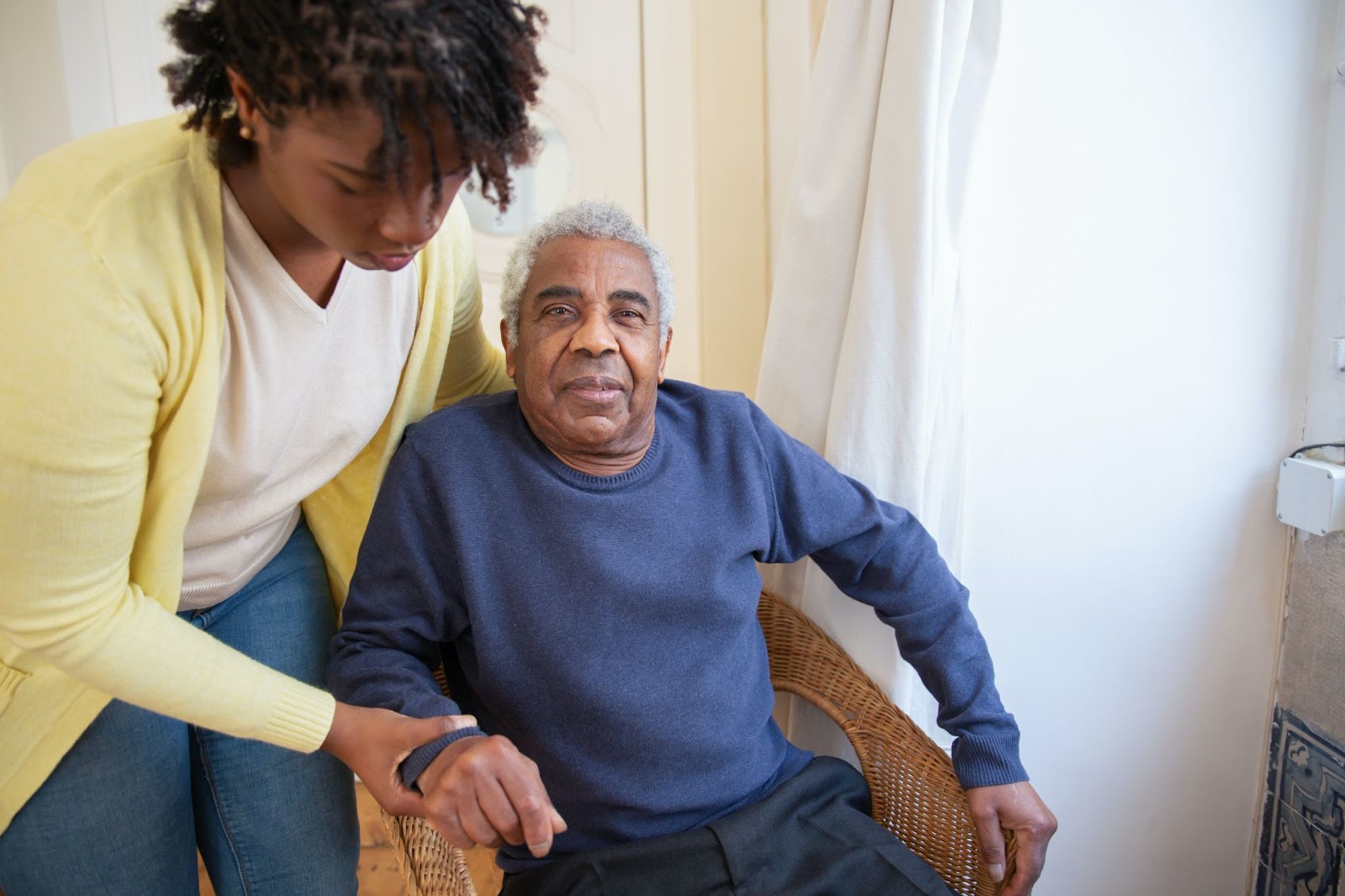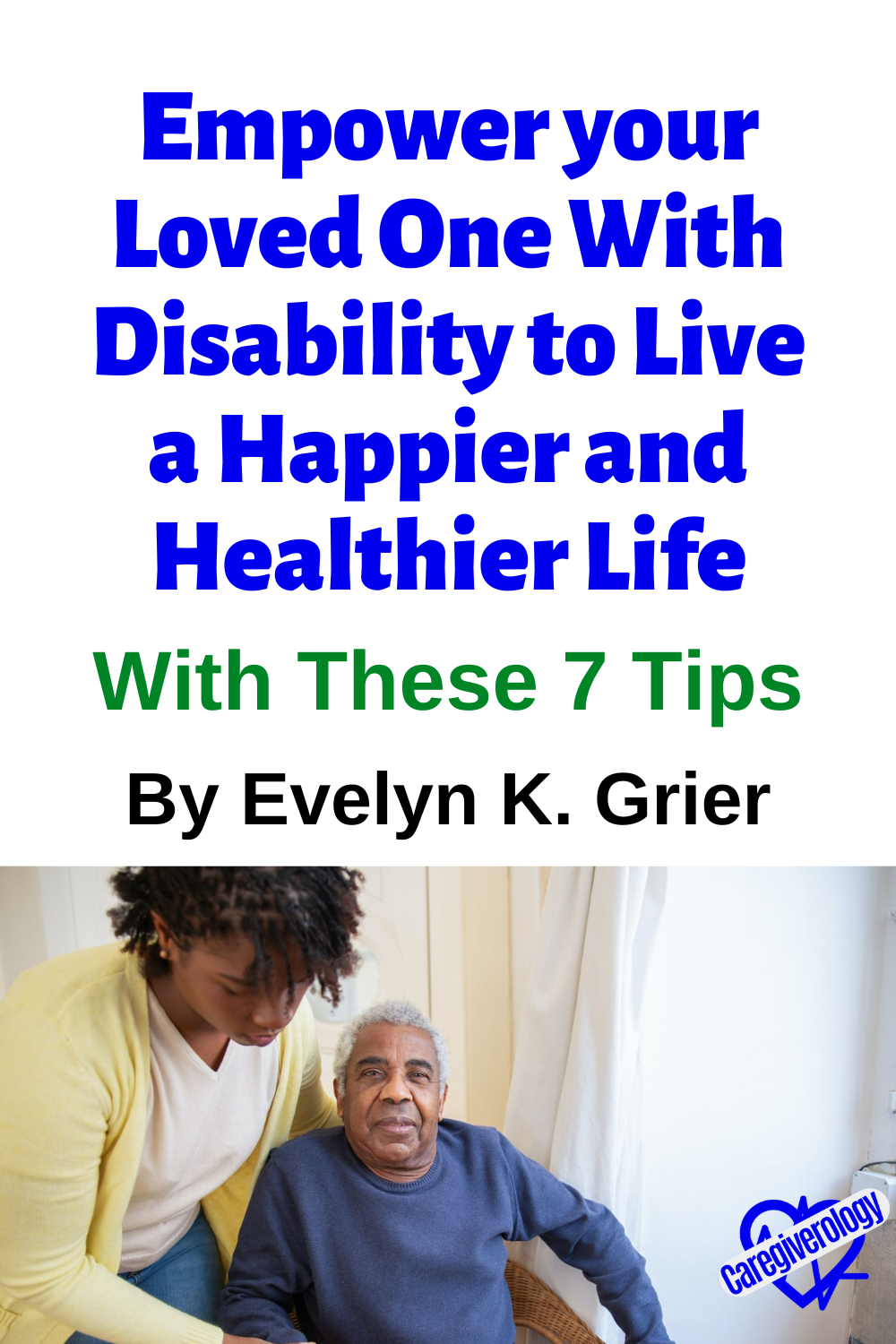Empower your Loved One With Disability to Live a Happier and Healthier Life With These 7 Tips

Living with a disability can be challenging, both physically and emotionally. It can impact an individual's ability to participate in daily activities, as well as their overall health and well-being. As a caregiver of someone with a disability, you play a crucial role in helping them live a happier and healthier life.
Empowering your loved one with disabilities means helping them develop the skills, confidence, and resources necessary to live an independent and fulfilling life. It involves understanding and respecting their limitations while also encouraging their independence and growth.
This article will provide tips for empowering your loved one with disabilities to live a happier and healthier life. These tips will help you learn how to improve your loved one's daily life, as well as their physical and emotional well-being.
1. Foster Your Loved One's Independence
One important strategy for empowering your loved one is fostering their independence. Someone who is independent feels as though they are in control of their destiny and can live a happy life.
Encourage your loved one to do as many things on their own as possible, including planning activities with friends and family, doing light chores, self-care like bathing and grooming, using adaptive equipment or technology, and taking part in community or social activities. The more self-sufficient they become, the less they will feel a burden on you.
2. Encourage Your Loved One to Try New Hobbies and Activities
It can be difficult for someone with a disability to get involved in new hobbies and activities, especially if they lack the resources or physical ability. Your loved one will likely need your support in this area, so ensure that you do what you can to open up and accept the idea of your loved one trying new things.
Look for and try new activities with your loved one, like painting, creating art or crafts, playing sports and games, going to the park or library, or working on community projects together.
Encourage your loved one to pursue new interests in your absence (like through email and Skype) so that they don't feel like they are being punished for trying something new. This will help your loved one develop self-confidence, a vital ingredient for self-esteem and empowerment.
3. Encourage Physical Activity
Physical activity is essential for maintaining good health and improving quality of life. As a loved one, you can encourage your loved one with disabilities to engage in physical activity that is appropriate for their abilities.
Encourage them to engage in activities that they enjoy, such as dancing, swimming, or cycling. Encourage them to set achievable goals, such as walking a certain distance or doing a certain number of repetitions of an exercise.
Make sure that they have access to any necessary equipment, such as a wheelchair or prosthetics. Consult a physical therapist or trainer to develop a safe and effective exercise plan.
4. Focus on Nutrition
Disabled people often lose muscle strength from illness, injury, or aging. They also tend to be less active, leading to lower food intake than usual. A well-balanced diet can help your loved one maintain strength and avoid losing muscle mass and bone density.
A healthy diet includes the proper balance of carbohydrates, fats, and protein, including vitamins and minerals. A nutritious diet will help them feel more energetic and improve their quality of life by improving muscle mass, skin tone, and concentration.
However, allow them to think about what they want to eat, how they want to present it, and how it looks. Guide them towards healthy options but keep the process open rather than limiting their choices.
5. Foster Social Connections
Many people enjoy spending time with friends and family, as well as being involved in community events. This is particularly important for someone with disabilities since socializing can help improve the quality of life by increasing enjoyment and reducing feelings of isolation or depression.
Encourage your loved one to take part in social activities. This can include going out to lunch, volunteering, participating in social gatherings, and attending community events. Support your loved one as they go out into the world on their own by providing transportation or getting involved in their activities.
6. Provide Emotional Support
Living with a disability can be challenging and emotionally taxing. As a companion, you can provide emotional support to your loved one with disabilities to help them cope with the emotional stress.
Encourage your loved one to express their feelings and emotions, and offer a listening ear when they need to talk. Provide words of encouragement and remind your loved one of their strengths and accomplishments.
By providing emotional support and being a source of strength and encouragement, you can help your loved one with disabilities to manage the emotional challenges of living with a disability, which can lead to greater happiness and improved quality of life.
7. Promote Disability Inclusivity
Disability inclusivity means creating an environment where people with disabilities feel welcome, valued, and fully included. As a loved one, you can promote disability inclusivity and help your loved one with disabilities to live a more fulfilling life.
Educate yourself and others on disability awareness, and challenge any negative attitudes or stereotypes you encounter.
Promote disability-inclusive events and activities, and encourage local businesses and organizations to provide disability accommodations. Advocate for disability-inclusive policies and practices in your community and workplace.
Conclusion
It is important to remember that a person with a disability can lead a happy and healthy life with the right support and resources. By understanding their needs, allowing them to make their own decisions, and involving them in activities, it is possible to help empower them to live life to the fullest. With these 7 tips, you can make a meaningful difference in your loved one's life and help them to achieve a higher quality of life.

Author Bio
Evelyn K. Grier is a seasoned content writer and blogger specializing in healthcare, senior care, and digital marketing. She contributes to the blogs and websites of SpringHive Digital Marketing Agency clients, creating engaging and informative content that resonates with readers. She also shares her expertise in senior care as a contributor to HAC Home Care, a website dedicated to providing helpful tips on caring for elderly family members. Outside work, Evelyn enjoys exploring new cuisines, practicing yoga, and hiking outdoors.
Mental Health and Support Articles
From Empower your Loved One With Disability to Live a Healthier Life to Home
Recent Articles
-
Common Truck Crash Injuries and Legal Remedies - Caregiverology
Jul 19, 25 10:49 AM
Known for its sun-drenched beaches, vibrant arts scene, and bustling maritime industry, Fort Lauderdale is a city that sees heavy traffic both on its roads and at its busy port. Unfortunately, with th… -
Why Expert Legal Help Matters After Serious Injury - Caregiverology
Jul 19, 25 10:35 AM
In Houston, over 67,600 car crashes occurred in 2023, resulting in 290 fatalities and 1,612 serious injuries. That’s roughly 185 accidents every day. -
How Life Care Planners Support Injury Recovery - Caregiverology
Jul 19, 25 10:18 AM
In Los Angeles, life care planners play a vital role in supporting injury recovery, especially for individuals facing catastrophic injuries such as traumatic brain injuries or spinal cord damage.





New! Comments
Have something to say about what you just read? Leave a comment in the box below.